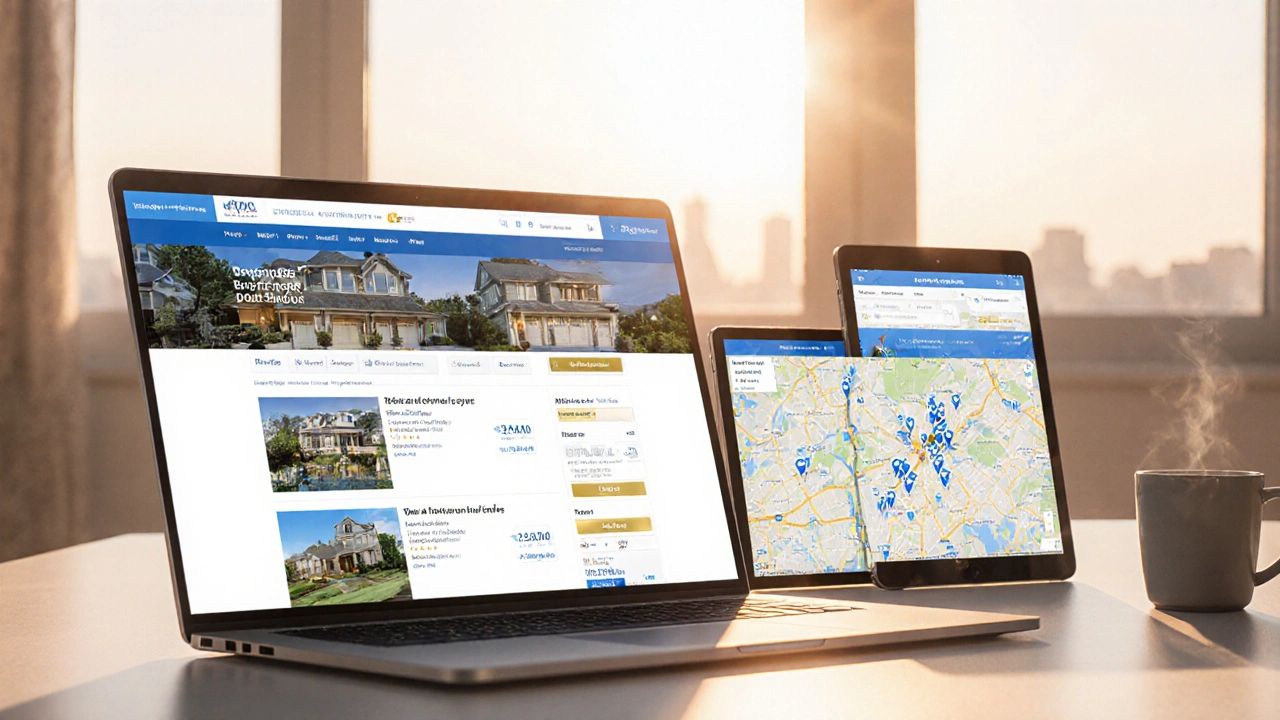SEO for Real Estate: Simple Steps to Get More Clicks and Leads
If you own a property portal, a broker page, or even a single‑property listing site, you’ve probably wondered why you’re not showing up on the first page of Google. The answer is usually a mix of missing keywords, slow pages, and weak local signals. Below are the most effective, easy‑to‑implement tactics that will lift your real‑estate rankings without a massive budget.
Pick the Right Keywords and Use Them Wisely
The first thing any SEO project needs is a solid keyword list. Start with phrases your buyers type when they’re ready to act: "buy 2‑bedroom flat in Pune," "luxury villas Bangalore price," or "commercial office space Delhi rent." Use a free tool like Google Keyword Planner or even the autocomplete box to confirm search volume. Once you have 5‑10 core phrases, weave them into the title tag, meta description, header (H1), and naturally throughout the copy. Avoid stuffing – a keyword every 100 words feels natural and keeps readers engaged.
Optimize Your Listings for Local Search
Real‑estate is hyper‑local, so Google expects strong location signals. Add the city, neighborhood, and pin code in the URL (e.g., /pune‑2bdr‑flat) and in schema markup. Create a Google My Business profile for every office and encourage happy clients to leave reviews. The more consistent NAP (Name, Address, Phone) data you have across citations, the better Google can match your site to local queries.
Another quick win is to embed a Google map on each property page. This not only helps visitors visualize the area but also sends a clear local relevance cue to search engines.
Speed Up Your Site and Make It Mobile‑Friendly
Potential buyers often browse on a phone while commuting. If your page takes more than three seconds to load, they’ll bounce and Google will notice. Compress images, enable browser caching, and use a CDN if possible. Test your pages with Google’s PageSpeed Insights and fix the red warnings. A responsive design that adapts to any screen size is non‑negotiable – Google now ranks mobile‑first.
Create Content That Solves Real Problems
Blog posts, buyer guides, and neighbourhood walkthroughs attract organic traffic and build authority. Write pieces like "How to Choose a Rental Property in Noida" or "Top 5 Schools Near Bangalore Luxury Villas." Each article should target a specific long‑tail keyword and end with a clear call‑to‑action, such as a contact form or a link to relevant listings.
Don’t forget video tours. A short, well‑edited walkthrough posted on YouTube and embedded on the property page can boost dwell time, a factor Google uses to gauge quality.
Earn Quality Backlinks
Backlinks are still a major ranking signal. Reach out to local news sites, real‑estate blogs, and city guides for a mention or guest post. Offer a market report with exclusive data – they’ll likely link back to you as the source. Avoid paid link schemes; Google can penalize you.
Track, Test, and Tweak
Set up Google Analytics and Search Console to monitor impressions, clicks, and average position for each keyword. If a page isn’t moving, test different headlines, add schema markup, or improve the internal linking structure. Small tweaks often lead to noticeable jumps in rankings.
In short, focus on the basics: relevant local keywords, fast mobile pages, helpful content, and trustworthy links. Apply these steps consistently and you’ll see more qualified traffic, more inquiries, and ultimately more closed deals.
Build a High‑Performing Real Estate Website in 2025
A step‑by‑step guide to building a fast, SEO‑friendly real estate website in 2025, covering IDX integration, platform choices, lead capture, and ongoing maintenance.
Keanu Rutherford | Sep, 29 2025 Read More
